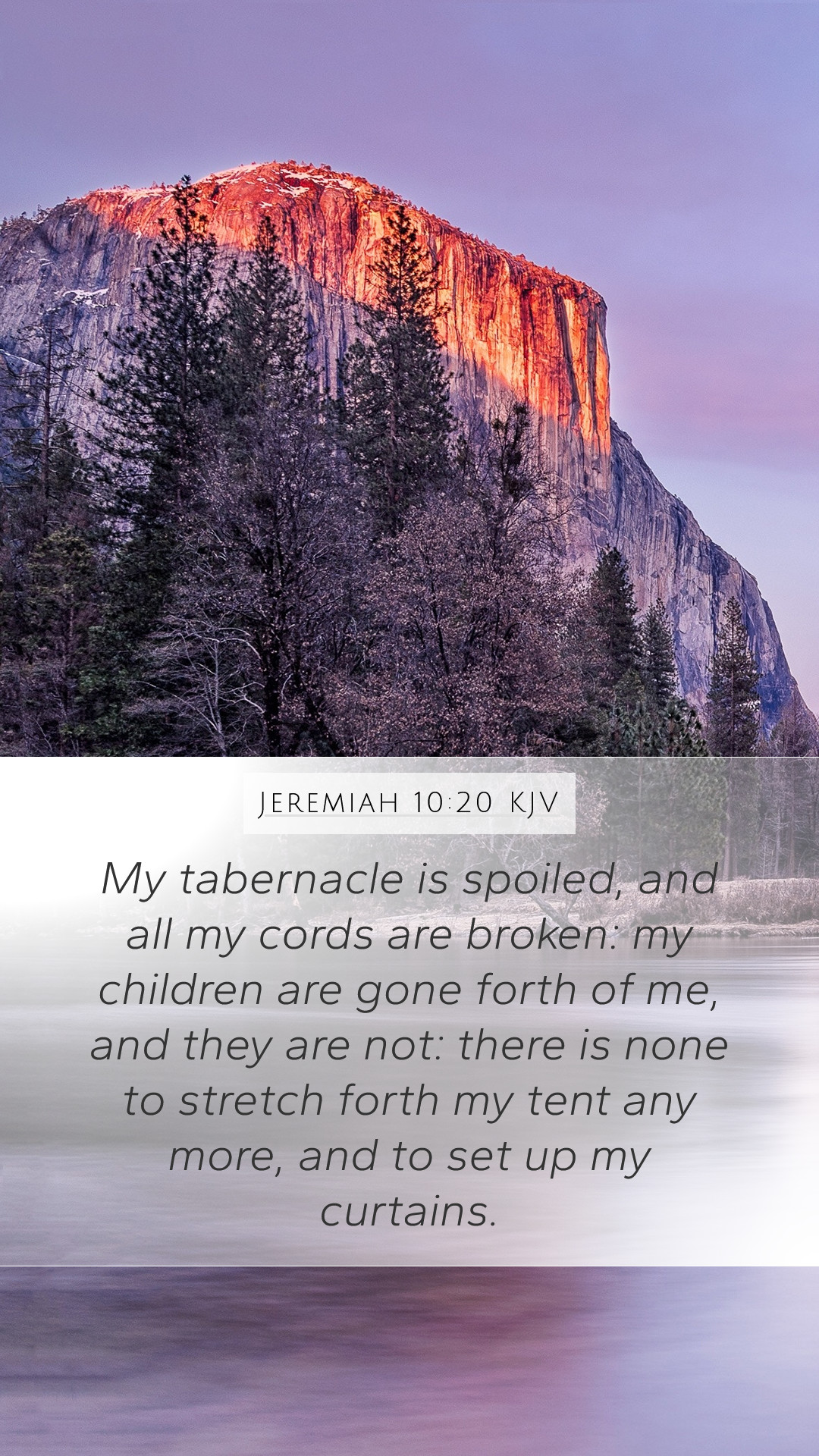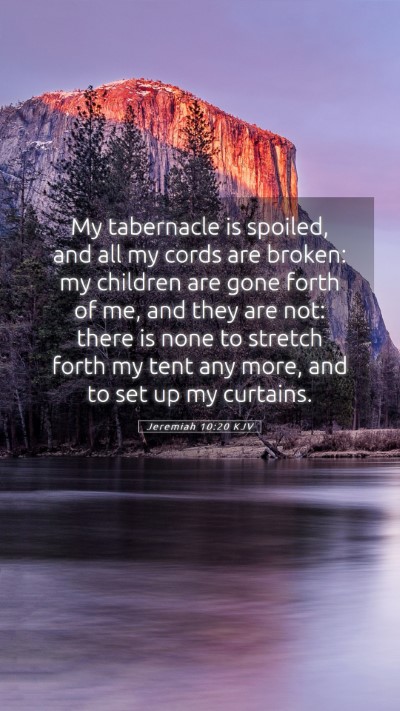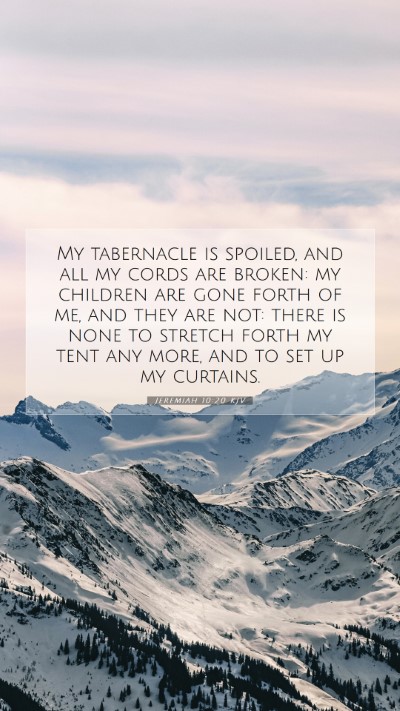Bible Verse Commentary: Jeremiah 10:20
Verse: "My tabernacle is spoiled, and all my cords are broken: my children are gone forth of me, and they are not: there is none to stretch forth my tent any more, and to set up my curtains." (Jeremiah 10:20)
Overview
In this verse, Jeremiah expresses a deep sense of loss and grief. It symbolically reflects the ruin of the nation of Israel, akin to a broken tent that cannot provide shelter. The imagery used indicates that the people of Israel, once a community bound together under God's protection, are now dispersed and without hope.
Interpretation and Analysis
This verse speaks to several critical themes in biblical interpretation, including abandonment, loss, and the consequences of turning away from God. Let's explore the insights provided by notable public domain commentators.
Matthew Henry's Commentary
Matthew Henry notes that the "tabernacle" represents the church and the people of Israel. He emphasizes that the "cords" being broken indicates a loss of connection amongst the community, leading to disarray and individual suffering. This reflects a spiritual barrenness that ensues when the Lord's favor is withdrawn due to sin.
Albert Barnes' Notes on the Bible
Albert Barnes interprets this passage as expressing the heartbreaking devastation of the nation. He explains that the "children" symbolically refer to the faithful followers who are lost due to the consequences of their disobedience. Barnes points to an underlying message about the importance of maintaining one’s faith and community ties, particularly in times of crisis.
Adam Clarke's Commentary
Adam Clarke provides a historical perspective, indicating that this verse reflects the lament of a people in exile. He discusses how the imagery of a "tent" conveys the idea of vulnerability and instability in the face of calamity. Clarke highlights the urgency for Israel to return to God in order to restore what has been lost.
Thematic Insights
- Loss of Protection: The broken tent symbolizes the lack of divine protection over the people.
- Spiritual Disunity: The scattering of children reflects disunity in faith and community, prompting a need for reconciliation with God.
- Call to Repentance: The lamentation serves as a call to repentance, urging the people to acknowledge their sins and seek restoration.
Contextual Analysis
This passage must be understood in the context of Jeremiah's prophetic ministry during a tumultuous period in Israel's history. The Babylonian exile was imminent, and this verse captures the emotional upheaval and prophetic warning during that time.
Application to Daily Life
For modern believers, Jeremiah 10:20 serves as a sobering reminder of the fragility of community and faith. It encourages individuals to maintain strong spiritual connections and to uphold their responsibilities to one another. Recognizing the communal aspect of faith can lead to restoration and hope, even in the direst situations.
Cross References
- Isaiah 54:2 - The call for restoration and expansion of God's people.
- Lamentations 1:1-2 - A similar lament expressing the sorrow over loss and desolation.
- Hebrews 13:14 - Reference to the transient nature of this world and the hope of a lasting city.
Conclusion
Jeremiah 10:20 captures the essence of despair amidst chaos and calls for a profound understanding of communal faith. Through the lens of historical context and deeper scholarly insights, this verse maintains relevance for today's believers seeking to grasp the meaning of scripture. Embracing the teachings of this verse may foster personal spiritual growth, communal harmony, and enduring faith.


